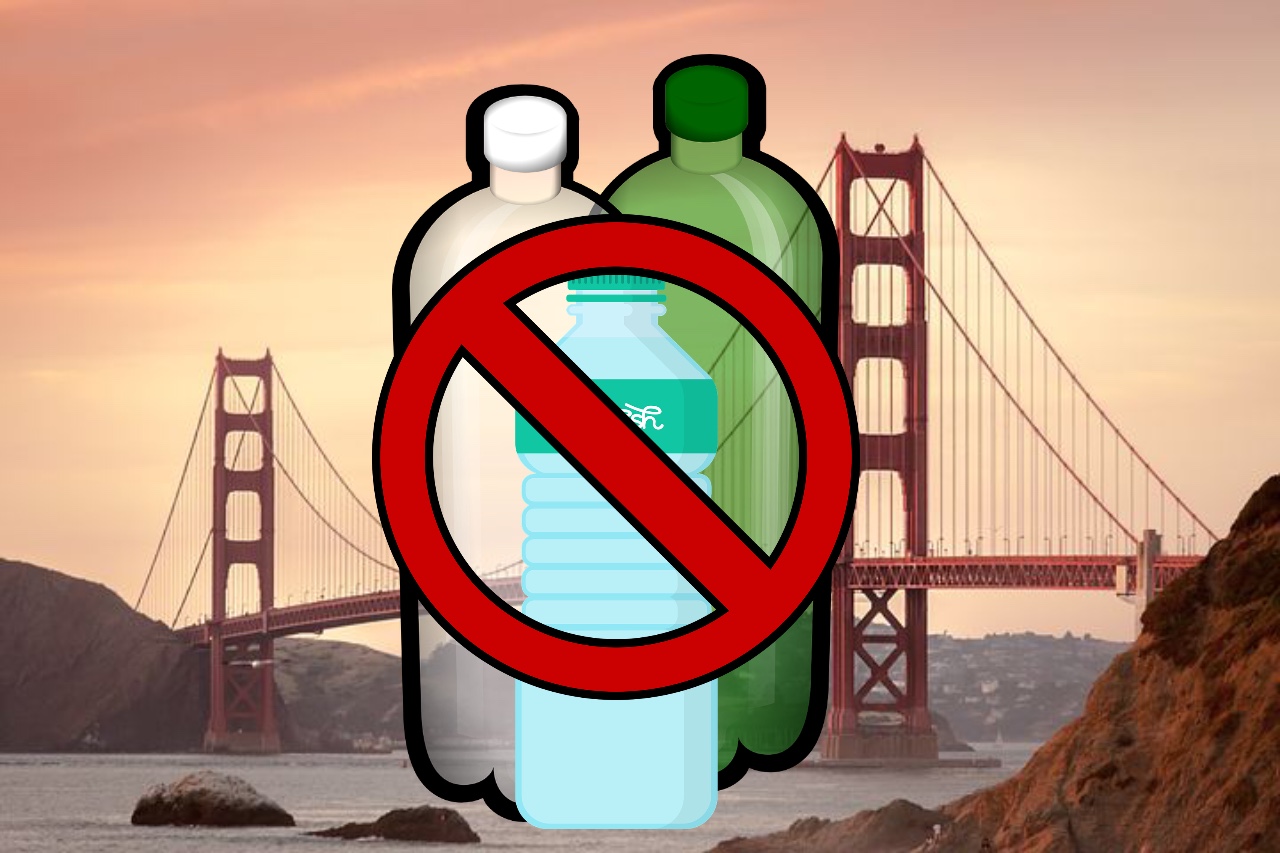
- Sustainable Planet -
- 3mins -
- 655 views
San Francisco city bans the sale of plastic bottles
New regulations prohibit the sale of plastic bottles at events held on city-owned property in San Francisco, and government agencies may no longer purchase bottled water.
San Francisco Becomes First City To Ban The Sale Of Plastic Bottles
The city of San Francisco recently moved to ban the sale of plastic bottles on city-owned properties. Environmentalists hope measures such as these will expand to other locations to reduce the US addiction to single-use disposable plastic items.
The ‘San Fran Ban’The ‘San Fran Ban’
In 2014, the city of San Francisco incorporated the first plastic bottle ban, though it prohibited far less than the current rules.
The new regulations prohibit the sale of plastic bottles at events held on city-owned property. Additionally, government agencies may not purchase bottled water.
Private businesses such as grocery stores and mini markets may continue to sell bottled water in the city. To date, little data exists on how the regulations have reduced overall plastic bottle use.
However, any measures to reduce plastic consumption makes a difference, and other cities have now begun enacting similar bans none too soon.
The city hopes that more consumers make the switch back to drinking regular tap water in lieu of pricey bottled stuff. The city has the advantage of possessing high quality tap water, making this goal reasonable.
Other cities, most notably Flint, MI, may have difficulty enacting similar bans until public infrastructure repair makes tap water safer for consumption.
Source: TheEcologist.org

Frisco started a revolution and became the first city to ban the sale of plastic water bottles
This is the start of a global movement which will lower the amount of waste thrown away annually, due to the billion-dollar plastic bottle industry.
In the last 4 years, this ban is planned to phase out the plastic water bottles sale which holds 21 ounces (621ml) or less in public spaces. A waiver will be permitted only if there is a lack of an adequate alternative water source.
This proposal was strongly supported by the Think Outside the Bottle campaign, which encourages restrictions of the “eco-unfriendly product”.
This is a huge step, even though it is not as strict as the full prohibitions passed in 14 national parks and numerous universities in Concord, Massachusetts
The fines for violating this ban can go up to $1,000. Hence, this will definitely stimulate you to purchase a reusable glass or metal bottle.
Joshua Arce, the chairman of the Commission on the Environment, declared that this ban is “another step forward in our zero-waste goal. We had big public events for decades without plastic and we’ll do fine without them again.”
Previously, San Francisco banned plastic bags and plastic foam containers, so this is not the first attempt to reduce the plastic pollution.
By 2020, they plan to eliminate all waste that goes to the landfill, and currently, the diversion rate stands at 80%.
However, the reaction of the American Beverage Association, which includes Coca-Cola Co. and PepsiCo, was the following: The ban is “nothing more than a solution in search of a problem. This is a misguided attempt by city supervisors to decrease waste in a city of avid recyclers.”
Nevertheless, the plastic pollution should be reduced at any cost, so moves of this one by the city of San Francisco may convince us to quit the use of plastics and become more aware of the need to protect our environment.
Source: TheSciNewsReporter
97% OF PLASTIC BOTTLES IN NORWAY GET RECYCLED: WHY CAN’T OURS?
Norway’s hyper-efficient deposit scheme sees an impressive 97% of all plastic bottles recycled. Could this be a blueprint for the rest of us? To find out more about the Norwegian system, and how it works, click here.

